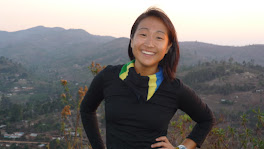This weekend marks my third week in Dar es Salaam. That’s only about 10% of the total time I’ll spend here, but it already seems like I’ve been here for months. I’ve gotten some valuable Swahili vocabulary in my arsenal. I know how to get from one part of the city to another. And I’ve shared some great food with some good friends.
Classes start this Monday, or so they say. Almost every student I’ve met is equally as hesitant to say with any certainty when school will officially start. There are rumors of a professors’ strike… and hardly any departments have finalized course schedules. We were told the university pushed classes to September 29 (originally set to start on September 8) because the government hadn’t yet determined how much loan money would be given to students. So the university (and students) were left in a lurch.
This brings me to the section I’ll call “The Tanzanian Way.” It’s easy for me to now dismiss so much about my daily life here as “normal.” But it will be useful for me to remember and document these unexpected or not-so-obvious differences between here and the U.S.
Getting someone’s attention
On each daladala (bus), which are privately owned and operated, there is a driver and a money collector/”look out.” The latter’s job is to look for anyone wishing to board the bus or alert the driver that someone would like to get off the bus. He is also responsible for taking bus fare from passengers. If the “look out” wants to get the attention of a pedestrian, he makes a kissing noise. (Imagine puckering your lips and making a loud sucking sound.) And if he wants your bus fare (which is collected at any point during your trip), he jingles some change by your ear.
Correct Change
It is not uncommon for me to pay for something, wait for my change, and have the cashier or vendor give me most of it but say, “Sorry, I don’t have enough coins.” So you just have to suck it up and move on.
China! China!
So my name, Jinna, means “name” in Swahili. Haha, right? Yeah. The word “China” is also pronounced with an “e” sound, so it’s more like “Cheena.” So when I walk around a market, people will yell out “China! China!” to get my attention. Needless to say, when I first heard this, I wondered how so many people knew my name. (I should note that locals also yell out mzungu, or white person, to my friends. This is obviously a loaded word but it’s not necessarily an insult. People are just tickled that foreigners are in Tanzania, with money.)
Line cutting
The pace of life in Africa is much slower than in the Western world. That being said, there is an inordinate amount of line cutting in Dar. You would think people would be content to wait patiently in line. But I have yet to be in a line when someone hasn’t blantantly cut in front of me.
The “S” Word
Sexuality is highly taboo here, which lends itself to significant hurdles in HIV/AIDS education. But a surprising result of sexual stigmatization is the lack of physical contact, even amongst family members. Hugging or holding hands of the opposite sex is considered inappropriate. Fathers don’t kiss daughters (or sons, for that matter), even when they are small children. A brother and sister (or son and mother, etc.) wouldn’t dare sit or stand next to each other on a bus. But, friends of the same sex walk in public holding hands.
It’s a bird
Most of the university classrooms have open windows or walls that have punched-out hole designs for occasional breezes in this tropical climate. This means we share lecture halls with birds. Lots and lots of birds. (For anyone who knows about my love of birds, you’ll know how pleased I am about this.)
Stay tuned for more of “The Tanzanian Way.” Next week, I go to Zanzibar for a long holiday weekend celebrating Eid ul-Fitr, the end of Ramadan.
Subscribe to:
Post Comments (Atom)





1 comment:
DAMN JINNA! xo, T-Rex and J-Lip.
Post a Comment